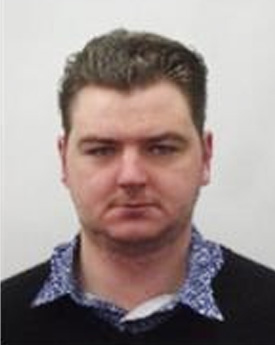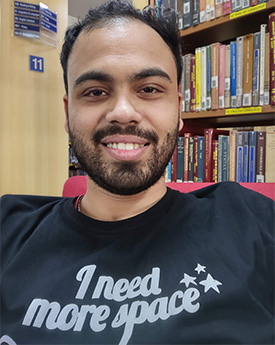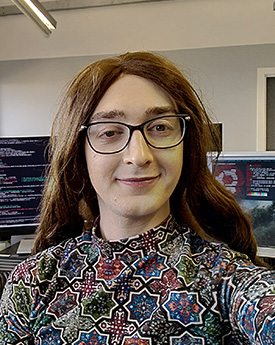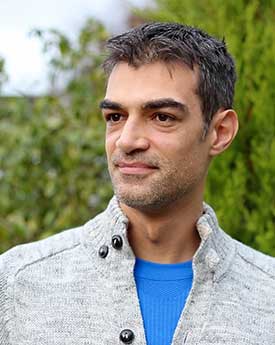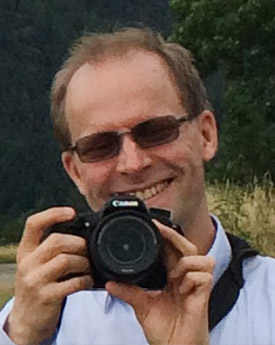Supervisor
Professor Henning Schomerus
Description
Quantum systems can display robust features related to topological properties. These attain precise values that can only change in phase transitions where the states change their topological properties. While the scope of these effects is well understood for electronic and superconducting systems, a much richer range is encountered for photonic and bosonic systems. In these systems particles can be created and annihilated, which results in loss, gain, and nonlinearity. Recent years have seen a surge of activity to tailor these bosonic systems to their electronic counterparts, mostly by eliminating the mentioned differences. Going beyond these efforts, work of the supervisor and collaborators has demonstrated that topological physics extends beyond these mere analogies, leading to experimental demonstrations for laser, microwave resonator arrays, and polaritonic condensates. In parallel, a substantial body of literature has emerged on models that extrapolate topological notions to these settings.
What is missing is a fundamental understanding of the physical scope of these extension. Most models include the out-of-equilibrium effects phenomenologically, often with the desired effects already in mind. Furthermore, the characterization of the models often uses properties that do not have an immediate physical meaning. This project tackles these questions generally and practically by developing a consistent response theory that allows to derive and analyse effective models. The development of this framework will be guided by considering concrete photonic and mechanical settings. The project develops analytical and numerical skills in quantum mechanics and classical wave dynamics.
Funding is available on a competitive basis. To be considered for a funded studentship, please submit your application by 31 January 2025.
Supervisor
Professor Henning Schomerus
Description
Quantum systems can encode information, but this information quickly becomes inaccessible if the associated degrees of freedom coupled with the environment. A key recent realization points towards systematic measurements as a way to arrest this undesirable process. However, measurements induce an additional source of randomness, and fundamentally change the dynamics of the system.
This project aims at characterizing the resulting complicated dynamics by identifying universal aspects that are independent of the details of the system. This will be approached by including random elements into the dynamics, which make the systems accessible via powerful stochastic methods. Important parts of the project will be to set up suitable models that capture the key physics of relevant systems, and to identify and evaluate quantities that robustly characterize the resulting dynamics. This project develops skills describe of quantum many-body systems analytical and numerically.
Funding is available on a competitive basis. To be considered for a funded studentship, please submit your application by 31 January 2025.
Supervisor
Dr Neil Drummond
Description
Positron annihilation spectroscopies are sensitive techniques for characterising both molecules and bulk materials. When a positron annihilates with an electron in a molecule or crystal, the resulting gamma rays carry information about the local electronic structure; e.g., the positron lifetime depends on the electronic density, while the momentum distribution of the outgoing radiation depends on the electronic momentum distribution. However, positrons significantly perturb the electronic structure of the molecules to which they bind. Hence experimental positron annihilation studies rely on computational modelling to interpret the results produced.
In this project you will develop and apply quantum Monte Carlo methods for solving the many-body Schroedinger equation for positronic molecules and bulk materials to produce data that will facilitate the interpretation of positron annihilation experiments. The work will involve developing and implementing appropriate forms of trial many-body wave function and investigating the effects of nuclear motion on positronic molecules.
The project is of a theoretical and computational nature, and is suited to a student with interests in numerical modelling, scientific computer programming, materials science, and quantum mechanics.
Funding is available on a competitive basis. To be considered for a funded studentship, please submit your application by 31 January 2025.
Supervisor
Dr Amos Chan
Description
A fundamental question in theoretical physics is how quantum information gets scrambled in quantum many-body systems. Strongly interacting quantum many-body systems are notoriously difficult to analyse. A recent breakthrough has allowed physicists to make progress by utilising a new family of minimal models, called random quantum circuits, which capture universal signatures of chaos, but yet are analytically tractable since the details of the physical system are abandoned except for unitarity and locality.
This project aims to advance the understanding of many-body quantum chaos, especially in the presence of symmetries, by studying observables like the spectral form factor, entanglement dynamics, and out-of-time-order correlator. This project develops transferable numerical skills and analytical skills when possible.
Funding is available on a competitive basis. To be considered for a funded studentship, please submit your application by 31 January 2025.
Supervisor
Dr Amos Chan
Description
The difficulty of isolating a system from its environment in realistic set-ups motivates the study of open quantum systems, which are systems containing some microscopic regions coupled to external environments. How do open quantum many-body systems relax to its steady state(s) via dissipation? What are the universal signatures of dynamical phases in many-body open quantum systems? And how does the notion of chaos and localisation differ in open systems from isolated ones?
This project aims to advance the understanding of open quantum many-body systems, specifically by studying observables like spectral statistics and entanglement dynamics. This project develops transferable numerical skills and analytical skills when possible.
Funding is available on a competitive basis. To be considered for a funded studentship, please submit your application by 31 January 2025.



